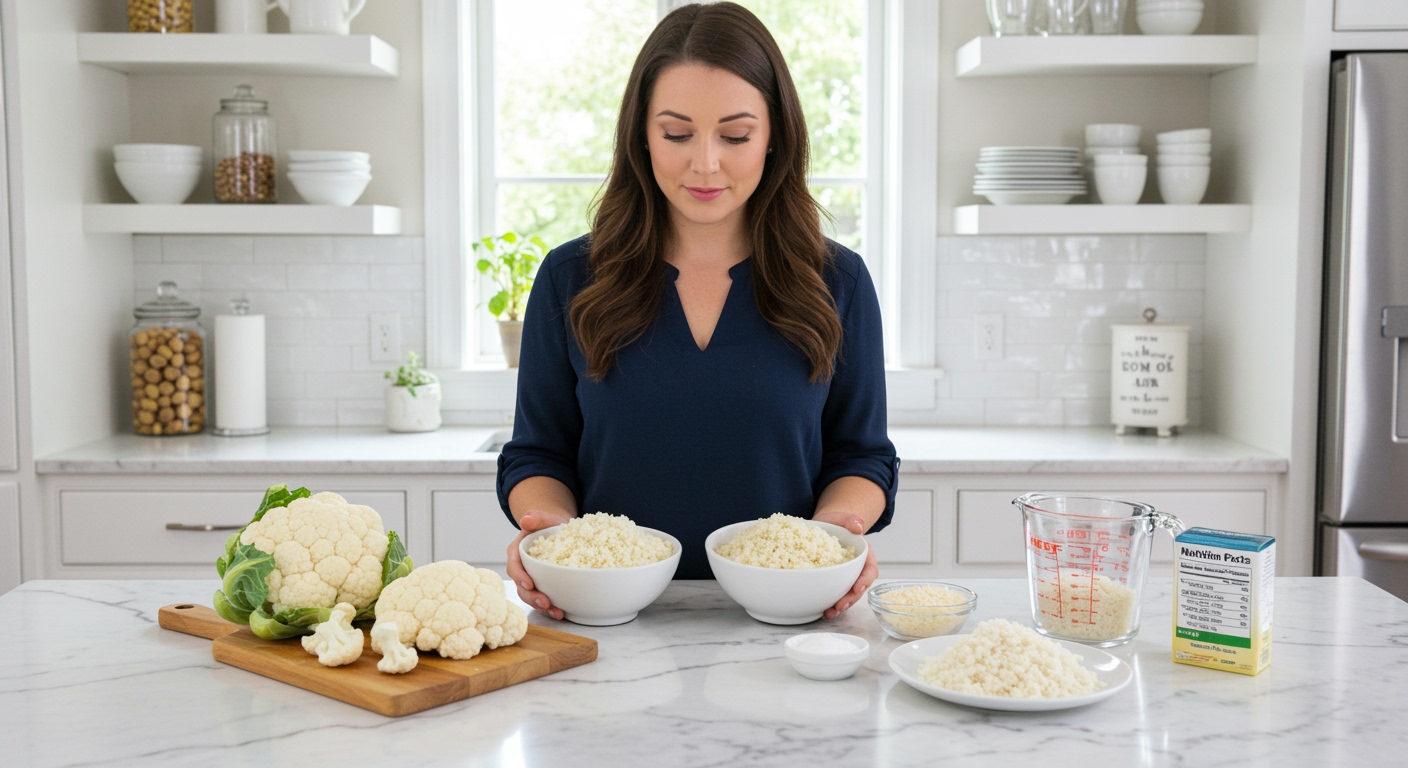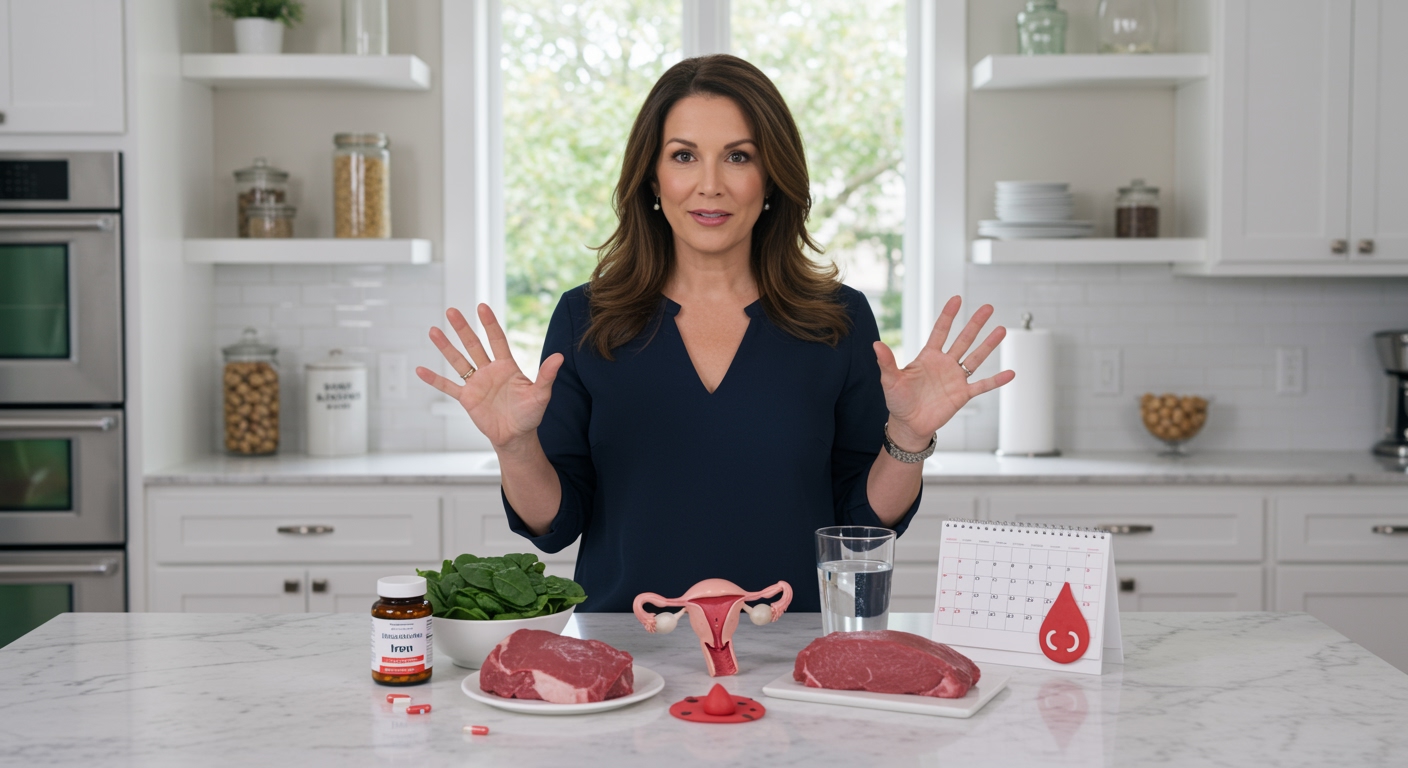✪ Key Takeaway: Turmeric can reduce PCOS inflammation through curcumin, but results depend on dosage, absorption, and individual response.
Introduction
You sprinkle turmeric on your food hoping it will calm your PCOS symptoms.
You might be wondering if this golden spice actually works or if you are wasting your time with another health trend.
Hi, I am Abdur, your nutrition coach and today I am going to explain exactly how turmeric affects PCOS inflammation and what you need to know to get real results.
What Makes Turmeric Anti-Inflammatory?
The active compound in turmeric called curcumin gives this spice its powerful anti-inflammatory properties.
Curcumin works by blocking specific inflammatory pathways in your body, particularly nuclear factor kappa B (NF-κB).
This pathway controls the production of inflammatory molecules called cytokines that worsen PCOS symptoms.
When NF-κB is overactive, it triggers a cascade of inflammation throughout your reproductive system and metabolic processes.
Curcumin acts like a brake on this inflammatory cascade, helping to restore balance in your immune system.
Research shows that curcumin can reduce inflammatory markers like C-reactive protein and interleukin-6 in women with PCOS.
✪ Fact: Regular turmeric contains only 2-3% curcumin, which explains why cooking with it alone may not provide therapeutic effects.
How Does PCOS Create Chronic Inflammation?
PCOS creates a perfect storm of chronic inflammation through multiple interconnected mechanisms.
Insulin resistance, which affects up to 80% of women with PCOS, triggers inflammatory responses throughout your body.
High insulin levels activate inflammatory pathways and increase the production of pro-inflammatory cytokines.
Excess androgen hormones in PCOS also contribute to inflammation by affecting immune cell function.
This hormonal imbalance creates oxidative stress, which damages cells and triggers more inflammatory responses.
The inflammation then worsens insulin resistance and hormone imbalances, creating a vicious cycle that perpetuates PCOS symptoms.
Breaking this cycle requires targeted interventions that address inflammation at its root causes.
✪ Note: Chronic inflammation in PCOS can increase your risk of diabetes, heart disease, and metabolic syndrome over time.
What Does Research Say About Turmeric and PCOS?
Clinical studies show that curcumin supplementation can significantly reduce inflammatory markers in women with PCOS.
A 2024 study found that women taking curcumin for 12 weeks experienced notable reductions in C-reactive protein and inflammatory cytokines.
The same study showed improvements in insulin sensitivity and hormone balance alongside reduced inflammation.
Another research trial demonstrated that curcumin helped lower oxidative stress markers by up to 40% in PCOS patients.
However, most successful studies used concentrated curcumin extracts rather than regular turmeric powder.
The effective doses in these studies ranged from 500mg to 1500mg of curcumin daily.
These amounts are nearly impossible to achieve through dietary turmeric alone, which explains why many women see limited results from cooking with turmeric.
✪ Pro Tip: Look for curcumin supplements with piperine (black pepper extract) to increase absorption by up to 2000%.
Why Might Turmeric Not Work for Everyone?
The biggest reason turmeric fails to help PCOS inflammation is poor absorption in the digestive system.
Curcumin is fat-soluble and breaks down quickly in your liver, leaving little time to reach inflamed tissues.
Many people take turmeric on an empty stomach, which dramatically reduces its bioavailability.
Individual genetic differences also affect how well your body processes and utilizes curcumin.
Some women have genetic variations that make them poor metabolizers of curcumin compounds.
Additionally, the severity of inflammation varies greatly between women with PCOS, affecting response rates.
Women with mild inflammation may see dramatic improvements, while those with severe chronic inflammation need comprehensive approaches beyond turmeric alone.
✪ Fact: Taking curcumin with a meal containing healthy fats can increase absorption by up to 7-fold compared to taking it alone.
How Should You Use Turmeric for Best Results?
Start with a high-quality curcumin supplement that contains 95% standardized curcuminoids for maximum potency.
Take your supplement with a meal that includes healthy fats like avocado, nuts, or olive oil to enhance absorption.
Choose formulations that include piperine or phospholipids to dramatically improve bioavailability.
Begin with 500mg daily and gradually increase to 1000-1500mg based on your response and tolerance.
Consistency matters more than dose, so take your supplement at the same time each day for at least 8-12 weeks.
Combine turmeric with other anti-inflammatory strategies like omega-3 fatty acids, regular exercise, and stress management.
Monitor your inflammatory markers through blood tests to track objective improvements rather than relying solely on symptom changes.
✪ Pro Tip: Avoid turmeric supplements if you take blood thinners, have gallstones, or are scheduled for surgery within two weeks.
The Bottom Line
Turmeric can genuinely reduce PCOS inflammation when used correctly with proper dosing and absorption enhancers.
Real healing happens when you combine science with consistency, not when you chase quick fixes with wishful thinking.
I would love to hear about your experience with turmeric for PCOS or any questions you have about natural anti-inflammatory approaches in the comments below.
References
At NutritionCrown, we use quality and credible sources to ensure our content is accurate and trustworthy. Below are the sources referenced in creating this article:
- Nature: Curcumin supplementation and inflammation markers
- PMC: Curcumin effects on PCOS inflammation
- Frontiers in Endocrinology: Anti-inflammatory effects of curcumin in PCOS
- UCLA Health: Can turmeric reduce inflammation





